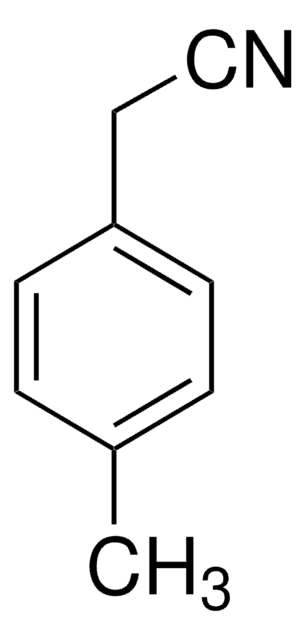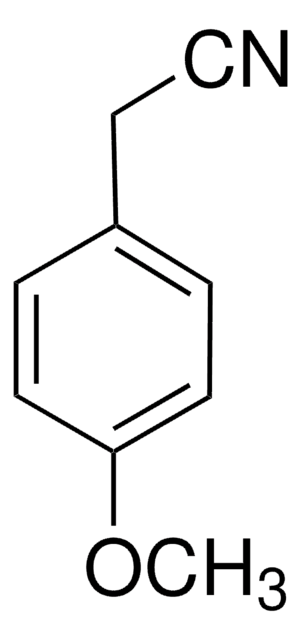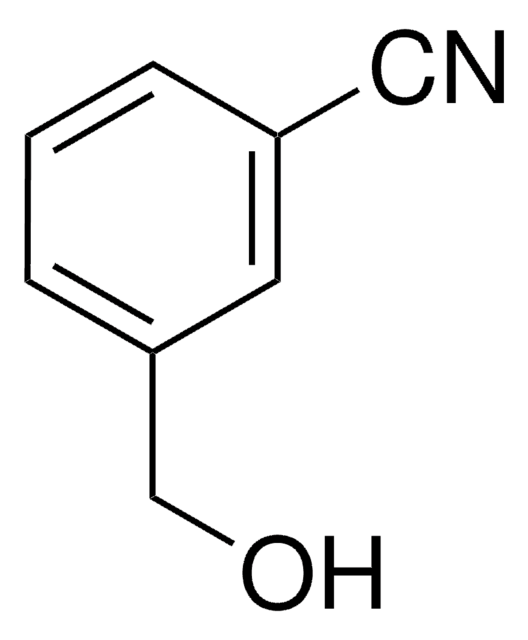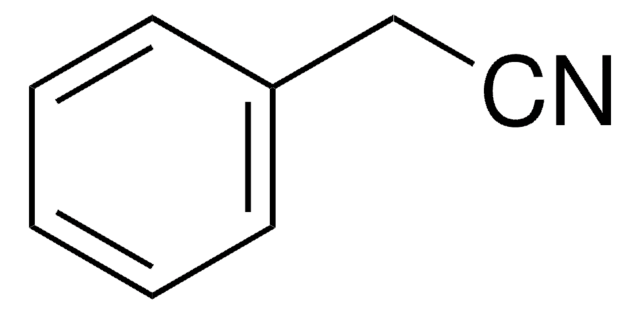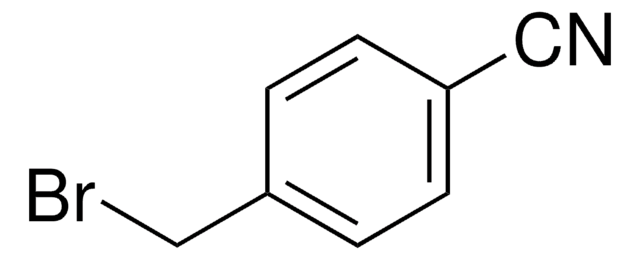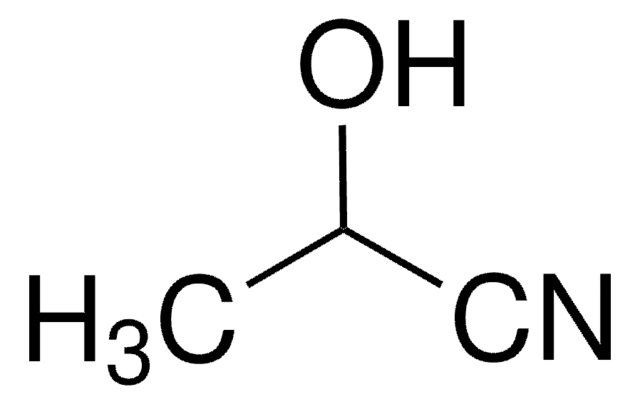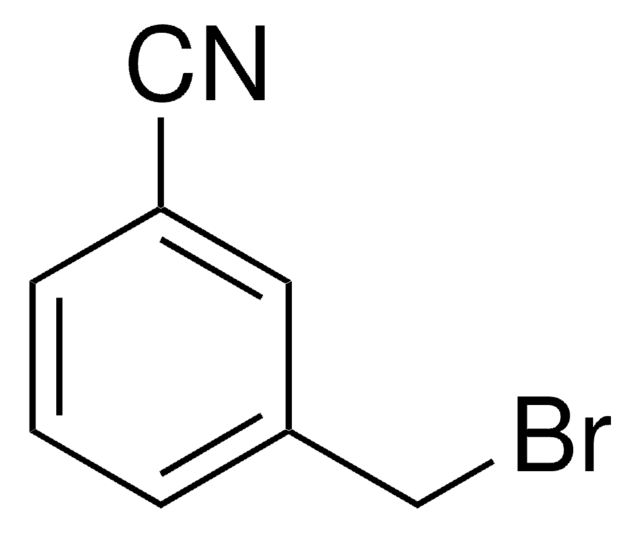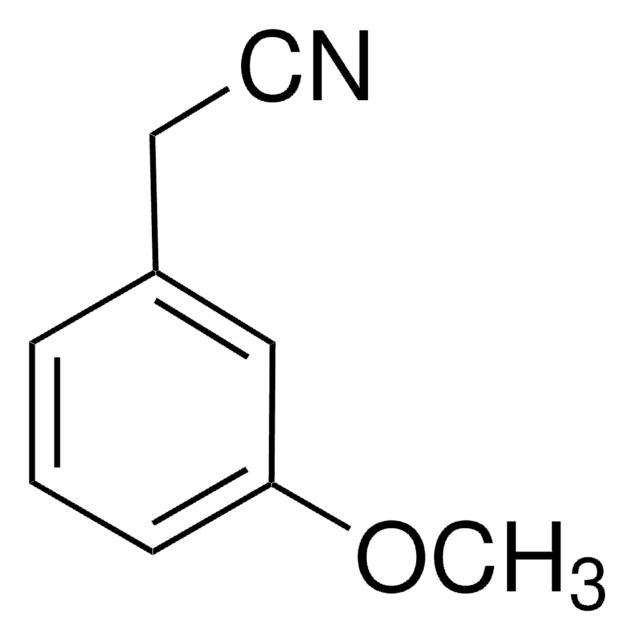M31503
α-Methyl-phenylacetonitril
96%
Synonym(e):
α-Methylphenylacetonitrile
About This Item
Empfohlene Produkte
Qualitätsniveau
Assay
96%
Brechungsindex
n20/D 1.5106 (lit.)
Dichte
0.985 g/mL at 25 °C (lit.)
SMILES String
CC(C#N)c1ccccc1
InChI
1S/C9H9N/c1-8(7-10)9-5-3-2-4-6-9/h2-6,8H,1H3
InChIKey
NVAOLENBKNECGF-UHFFFAOYSA-N
Verwandte Kategorien
Signalwort
Warning
Gefahreneinstufungen
Acute Tox. 4 Dermal - Acute Tox. 4 Inhalation - Acute Tox. 4 Oral - Eye Irrit. 2 - Skin Irrit. 2 - STOT SE 3
Zielorgane
Respiratory system
Lagerklassenschlüssel
6.1C - Combustible, acute toxic Cat.3 / toxic compounds or compounds which causing chronic effects
WGK
WGK 3
Flammpunkt (°F)
201.2 °F - closed cup
Flammpunkt (°C)
94 °C - closed cup
Persönliche Schutzausrüstung
Eyeshields, Faceshields, Gloves, type ABEK (EN14387) respirator filter
Analysenzertifikate (COA)
Suchen Sie nach Analysenzertifikate (COA), indem Sie die Lot-/Chargennummer des Produkts eingeben. Lot- und Chargennummern sind auf dem Produktetikett hinter den Wörtern ‘Lot’ oder ‘Batch’ (Lot oder Charge) zu finden.
Besitzen Sie dieses Produkt bereits?
In der Dokumentenbibliothek finden Sie die Dokumentation zu den Produkten, die Sie kürzlich erworben haben.
Unser Team von Wissenschaftlern verfügt über Erfahrung in allen Forschungsbereichen einschließlich Life Science, Materialwissenschaften, chemischer Synthese, Chromatographie, Analytik und vielen mehr..
Setzen Sie sich mit dem technischen Dienst in Verbindung.